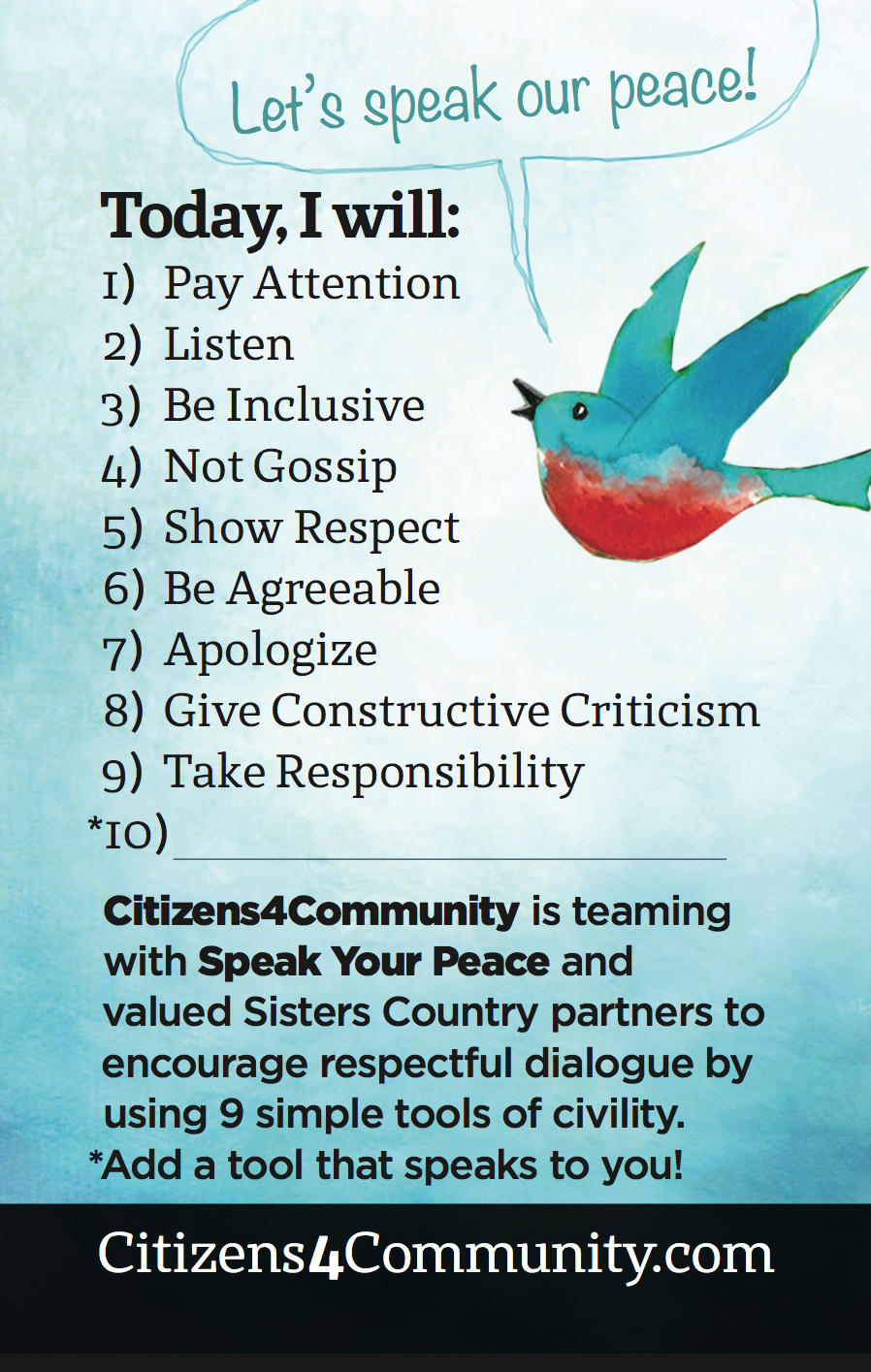The Sisters Country Civility Project this week unveiled its inaugural Sisters "Tool Cards." The Civility Project is a local, grassroots initiative by Citizens4Community (C4C), in collaboration with Speak Your Peace and a growing list of valued local Partners. The first nine "tools" highlighted on these cards were developed by SYP, based on 25 principles of civility proposed by P.M. Forni in his book “Choosing Civility."
Additionally, to keep this effort truly reflective of our local community, C4C is inviting individuals and local groups to consider adding a 10th civility "tool" that speaks intimately to them or specifically and genuinely to the work and values of their organization.
The Civility Project aims to encourage people to communicate more respectfully and—therefore—more effectively. It is NOT a campaign to end disagreements. Instead, it is an effort to improve public discourse by simply keeping ourselves reminded of very basic principles of civility—ideals that are sometimes particularly easy to forget during the heat of a discussion.
These cards are meant to reflect the inherent beauty of Sisters as they also communicate core C4C Goals, which include: elevating our discourse, bringing new ideas and voices to the table, and broadening civic engagement—all as a means to continually strengthen our community.
While definitions for the tools are offered below, C4C also encourages residents to talk about each tool among themselves and to contemplate how these tools might also be defined in the context of their own interactions.
1) Pay Attention—Be aware and attend to the world and the people around you.
2) Listen—Focus on others in order to better understand their points of view.
3) Be Inclusive—Welcome all groups of citizens working for the greater good of the community.
4) Don’t Gossip—And don’t accept when others choose to do so.
5) Show Respect—Honor other people and their opinions, especially in the midst of a disagreement.
6) Be Agreeable (i.e., Seek Common Ground)—Look for opportunities to agree; don’t contradict just to do so.
7) Apologize—Be sincere and repair damaged relationships.
8) Give Constructive Criticism—When disagreeing, stick to the issues and don’t make a personal attack.
9) Take Responsibility—Don’t shift responsibility and blame onto others.


